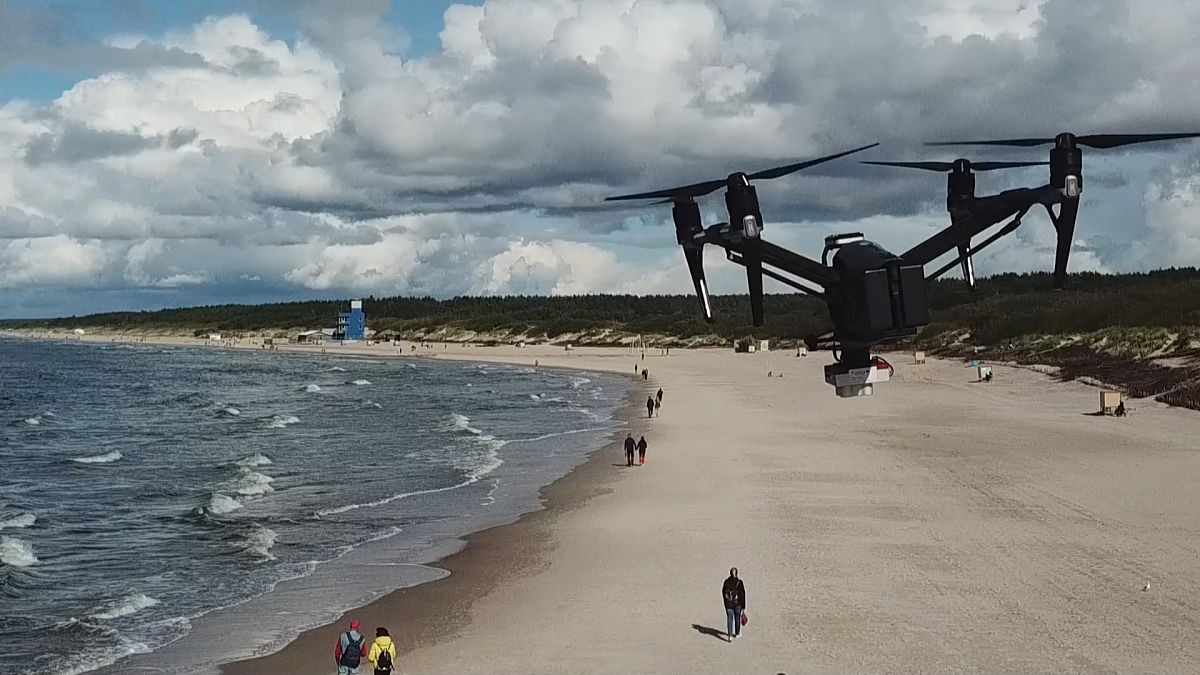Worryingly high levels of dangerous bacteria, called, vibrio, are among the findings of Latvian and Lithuanian scientists. It's a study of marine litter on their shared coastline and part of a project called ESMIC, largely funded by the European Cohesion Policy.
A group of Latvian and Lithuanian scientists combs the border beach of Palanga. They are studying the accumulation of plastic and are participating in a European project called ESMIC, which maps, analyses, and provides data and methodology for dealing with this pollution.
Arūnas Balčiūnas is the ESMIC Project Manager and he told Euronews how the project works.
"We thought that there was a lack of specific information gathering and the spreading out between the municipalities, the general public, and the science community to see and find the solutions for the solving of this issue of the coastal and marine environment, pollution with marine litter. So the project was aimed in several directions.
The project is formed out of four project partners, two of them are in Lithuania and two of them are in Latvia. So colleagues from Riga will help us and the Environmental Protection Agency regarding open sea monitoring of microplastics.
So they are more advanced than in the monitoring of plastics in the open sea area. While, on the other hand, at Klaipėda University Marine Research Institute, we are more advanced in remote sensing monitoring techniques and in coastal marinetter pollution activities.
The other Latvian project partner, the Foundation for Environmental Education, is responsible for annual beach cleanup activities which we are trying to implement in Lithuania this year, to bring closer the Latvian and Lithuanian communities to cleaning our common coastline. So that is what we are doing here today."
Every time the scientists collect their samples they show passers-by what they find on the beach. This outreach work has now collected 736 pieces of litter found in 100 metres of beach. This is 36 times the limit considered to be a "sufficient level of precaution" in Europe.
